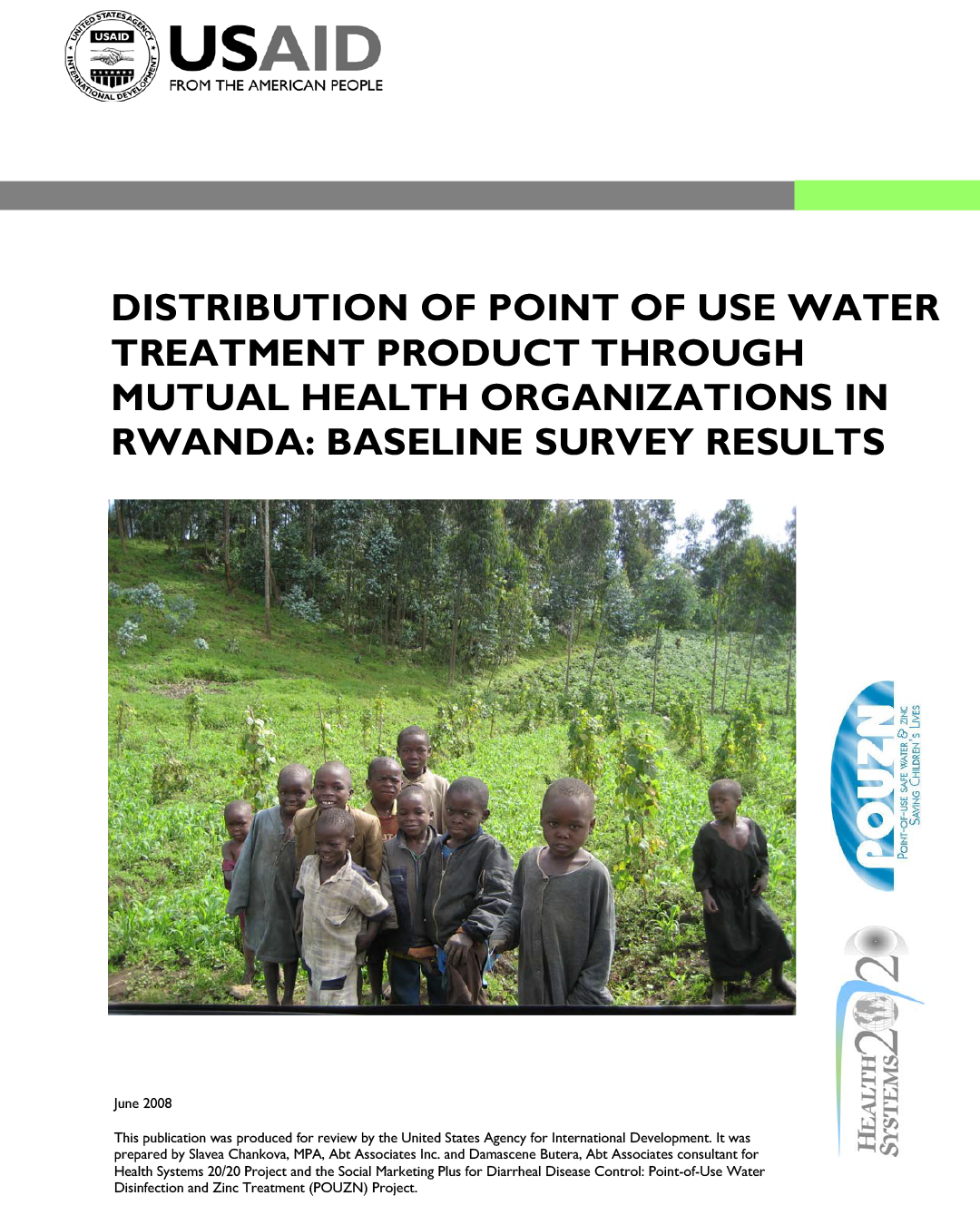
Resource Library
Distribution of Point of Use Water Treatment Product Through Mutual Health Organizations in Rwanda: Baseline Survey Results
Mutual health organizations (MHOs) are voluntary community-based health insurance organizations that focus on informal sector, low-income populations. MHOs are a promising channel for reaching these target groups with low-cost health products. However, MHOs have rarely been tapped for social marketing of health promotion products, and there is limited evidence on the impact of such interventions. In early 2007, Health Systems 20/20 started to explore options to implement and evaluate a pilot project centered on the promotion and distribution of a child health product through MHOs. In Rwanda, MHOs (called mutuelles de santé) cover about 75 percent of the population. Diarrheal disease is one of the leading causes of death for Rwandan children. Unsafe water and poor hygiene and sanitation are major contributors to diarrhea prevalence. While there is overwhelming evidence that point-of-use (POU) water treatment reduces diarrhea prevalence, use of POU treatment in Rwanda is very low. Taking into account these factors, Health Systems 20/20 partnered with Population Services International (PSI)/Rwanda to implement a pilot project that aims to integrate the promotion and distribution of Sûr'Eau, a chlorine-based POU water disinfection product, through the mutuelles. The goal of the intervention is to increase household use of Sûr'Eau, decrease prevalence of diarrhea, and reduce expenditures on treatment of diarrheal disease (both payments by the mutuelles, and out-of-pocket payments by households). Sûr'Eau has been available in Rwanda since 2002, and is currently sold through health centers and commercial outlets throughout the country. However, use of the product in poor rural communities is very low. Through the pilot project, mutuelles in two districts in Rwanda (Nyagatare and Rubavu) will promote and sell Sûr'Eau at the community level through the mutuelle outreach agents based at the village level. In addition, in one of the two pilot districts, mutuelles will sell the product at a discounted price to mutuelle member households. A baseline evaluation was conduced in December 2007, to assess knowledge, attitude, and use of the product and diarrhea prevalence among mutuelle families with children under five. The baseline evaluation was conducted in the two intervention districts and one control district, Karongi (where the pilot project will not be launched in 2008). A follow-up evaluation will be conducted in late 2008, to assess the impact of this pilot project on the use of Sûr'Eau and diarrhea prevalence among children under five.
Resource Type : Report
Country : Rwanda
Year : 2008-08-27T13:45:00
Language : English
Project : SHOPS


